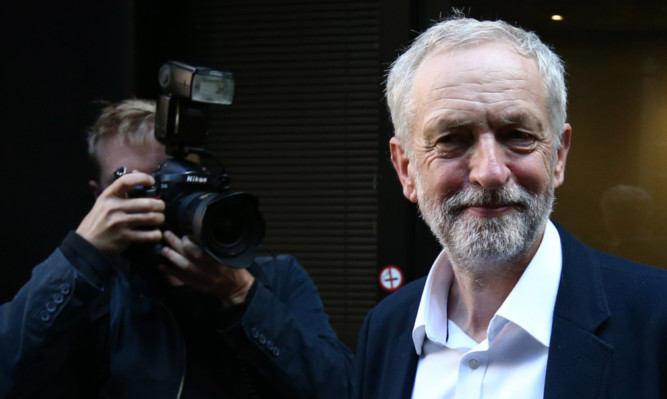Politics has been fun since Saturday unless you are a Labour politician who hoped one day to serve in the British government.
The election of Jeremy Corbyn as party leader has more or less put paid to there being a Labour prime minister for a generation, or two. Even if he retires when he is 70 (four years from now), the general public is unlikely to invest its trust in an organisation hell bent on self-destruction.
And if any starry-eyed idealists out there still believe Corbyn’s alternative vision for the country is workable, they only need to look at his choice of shadow chancellor, John McDonnell. Or the scramble to find a shadow defence secretary (“what would you do if we had to invade Russia?”).
Without Tony Blair, Labour has not won a majority for almost 50 years. It’s a good fact because it reminds us that the British people are mostly moderate.
Corbyn might represent the protest vote but you wouldn’t want him fighting your corner, either on the domestic or the international stage. Electorally speaking, Labour at Westminster is finished for the foreseeable future.
However, while his victory is bad for his party, it could turn out to be good for Scotland and for the UK.
Desire for radicalism
Much of the post-referendum surge of support for the Scottish Nationalists has been at the expense of the Labour Party here and is attributed not to a desire for separation but for more radical politics.
The SNP seized on this very successfully and duly moved leftwards, to become the voice of the anti-austerity, “poor us” constituency. It was not enough to win them the independence ballot a year ago even left-wing Scots know what’s good for them but it helped them triumph in the general election in May.
Labour, under the fairly leftist Ed Miliband, could not match the SNP’s promises (of oil wealth, land grabs and an end to cuts). No sensible party could.
But now along comes Jeremy Corbyn, an MP who has been in perpetual opposition in his 30 years in the Commons. His speech is littered with words like “equality” and “fairness” and he can carry on opposing every unpopular policy of the Tories because he will never have to run the economy, or deal with the migrant crisis, or indeed with Putin.
No wonder he is a crowd pleaser. We saw his effect on Scottish voters when he embarked on a tour of our cities during his leadership campaign.
Unlike any recent Labour leader, he packed out halls and brought people to their feet.
Could this evangelism for the man spread to the party? It is possible to see a fickle public being persuaded of the merits of the permanent outsider Corbyn, just when the SNP has turned into the establishment, with political hegemony, the power to dispense patronage and the whiff of corruption (look at the cronyism row).
Although many Nationalists think they are still part of a maverick movement, Nicola Sturgeon understands the burdens and benefits of office.
A republican at heart, who refused to swear allegiance to the Queen when first elected, she has embraced the whole royal rigmarole, right down to accepting Her Majesty’s hospitality at Balmoral.
Staunch anti-monarchists, appalled by her sell-out, will find Corbyn’s principles are less compromised.
Dennis Canavan, a former Labour MP who switched sides and ended up chairing Yes Scotland, said his old colleague “doesn’t get Scotland” and the SNP has nothing to fear from a Corbyn charm offensive north of the border.
However, voters canvassed for their opinion begged to differ. Jeremy could bring Scots back to Labour, said a lapsed party member in Edinburgh, interviewed on the Today show on Monday.
Changing society
Canavan said people voted for nationalism not as an end in itself but in order to change society. But that is exactly why Corbyn is potentially appealing he also wants to change society but without all the bother of breaking up the United Kingdom.
Like many Unionists, I hope he becomes a regular visitor to Scotland before the Scottish elections next year and stirs up more Corbyn mania.
His back-of-an-envelope Corbynomics will easily outgun the money-grows-on-trees financial plans of the Salmond years.
And the Scots who fell for talk of oil funds will be bedazzled by a more extreme form of extremism than even the Nationalists can provide.
Corbyn could put the separatist genie back in the bottle in a way the sane old guard of New Labour could not.
The only snags in this argument are: a) Kezia Dugdale, the Scottish Labour leader, who might try to counter the madness and b) there is not much time before May 2016 to tempt the left back to Labour.
Send for Corbyn now. Scotland needs him.
